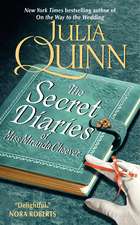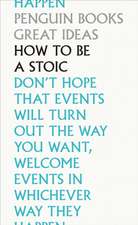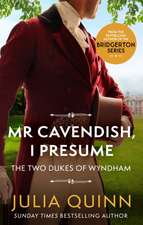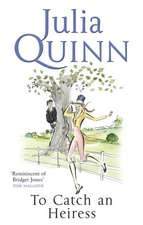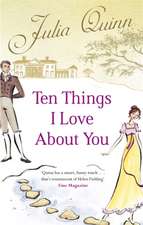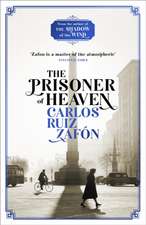The Shadow of the Wind
Autor Carlos Ruiz Zafon Traducere de Lucia Gravesen Limba Engleză Hardback – 31 mar 2004 – vârsta de la 18 ani
Vezi toate premiile Carte premiată
Book Sense Book of the Year Award (2005), Dilys Award (2005)
Make this your next book club selection and everyone saves.
Get 15% off when you order 5 or more of this title for your book club.
Simply enter the coupon code ZAFONSHADOW at checkout.
This offer does not apply to eBook purchases. This offer applies to only one downloadable audio per purchase.
Barcelona, 1945—just after the war, a great world city lies in shadow, nursing its wounds, and a boy named Daniel awakes on his eleventh birthday to find that he can no longer remember his mother’s face. To console his only child, Daniel’s widowed father, an antiquarian book dealer, initiates him into the secret of the Cemetery of Forgotten Books, a library tended by Barcelona’s guild of rare-book dealers as a repository for books forgotten by the world, waiting for someone who will care about them again. Daniel’s father coaxes him to choose a volume from the spiraling labyrinth of shelves, one that, it is said, will have a special meaning for him. And Daniel so loves the novel he selects, The Shadow of the Wind by one Julian Carax, that he sets out to find the rest of Carax’s work. To his shock, he discovers that someone has been systematically destroying every copy of every book this author has written. In fact, he may have the last one in existence. Before Daniel knows it his seemingly innocent quest has opened a door into one of Barcelona’s darkest secrets, an epic story of murder, magic, madness and doomed love. And before long he realizes that if he doesn’t find out the truth about Julian Carax, he and those closest to him will suffer horribly.
As with all astounding novels, The Shadow of the Wind sends the mind groping for comparisons —The Crimson Petal and the White? The novels of Arturo Pérez-Reverte? Of Victor Hugo? Love in the Time of Cholera?—but in the end, as with all astounding novels, no comparison can suffice. As one leading Spanish reviewer wrote, “The originality of Ruiz Zafón’s voice is bombproof and displays a diabolical talent. The Shadow of the Wind announces a phenomenon in Spanish literature.” An uncannily absorbing historical mystery, a heart-piercing romance, and a moving homage to the mystical power of books, The Shadow of the Wind is a triumph of the storyteller’s art.
Get 15% off when you order 5 or more of this title for your book club.
Simply enter the coupon code ZAFONSHADOW at checkout.
This offer does not apply to eBook purchases. This offer applies to only one downloadable audio per purchase.
Barcelona, 1945—just after the war, a great world city lies in shadow, nursing its wounds, and a boy named Daniel awakes on his eleventh birthday to find that he can no longer remember his mother’s face. To console his only child, Daniel’s widowed father, an antiquarian book dealer, initiates him into the secret of the Cemetery of Forgotten Books, a library tended by Barcelona’s guild of rare-book dealers as a repository for books forgotten by the world, waiting for someone who will care about them again. Daniel’s father coaxes him to choose a volume from the spiraling labyrinth of shelves, one that, it is said, will have a special meaning for him. And Daniel so loves the novel he selects, The Shadow of the Wind by one Julian Carax, that he sets out to find the rest of Carax’s work. To his shock, he discovers that someone has been systematically destroying every copy of every book this author has written. In fact, he may have the last one in existence. Before Daniel knows it his seemingly innocent quest has opened a door into one of Barcelona’s darkest secrets, an epic story of murder, magic, madness and doomed love. And before long he realizes that if he doesn’t find out the truth about Julian Carax, he and those closest to him will suffer horribly.
As with all astounding novels, The Shadow of the Wind sends the mind groping for comparisons —The Crimson Petal and the White? The novels of Arturo Pérez-Reverte? Of Victor Hugo? Love in the Time of Cholera?—but in the end, as with all astounding novels, no comparison can suffice. As one leading Spanish reviewer wrote, “The originality of Ruiz Zafón’s voice is bombproof and displays a diabolical talent. The Shadow of the Wind announces a phenomenon in Spanish literature.” An uncannily absorbing historical mystery, a heart-piercing romance, and a moving homage to the mystical power of books, The Shadow of the Wind is a triumph of the storyteller’s art.
| Toate formatele și edițiile | Preț | Express |
|---|---|---|
| Hardback (2) | 156.56 lei 3-5 săpt. | +80.06 lei 6-12 zile |
| Orion Publishing Group – 11 iul 2024 | 156.56 lei 3-5 săpt. | +80.06 lei 6-12 zile |
| Penguin Books – 31 mar 2004 | 172.43 lei 3-5 săpt. |
Preț: 172.43 lei
Nou
Puncte Express: 259
Preț estimativ în valută:
32.99€ • 34.45$ • 27.31£
32.99€ • 34.45$ • 27.31£
Carte disponibilă
Livrare economică 14-28 martie
Preluare comenzi: 021 569.72.76
Specificații
ISBN-13: 9781594200106
ISBN-10: 1594200106
Pagini: 486
Dimensiuni: 165 x 243 x 38 mm
Greutate: 0.77 kg
Editura: Penguin Books
ISBN-10: 1594200106
Pagini: 486
Dimensiuni: 165 x 243 x 38 mm
Greutate: 0.77 kg
Editura: Penguin Books
Recenzii
"...[T]here is no question that Wind is wondrous.... [M]asterful, meticulous plotting and extraordinary control over language.... The Shadow of the Wind is ultimately a love letter to literature, intended for readers as passionate about storytelling as its young hero." —Entertainment Weekly
"The Shadow of the Wind will keep you up nights—and it'll be time well spent. Absolutely marvelous." —Kirkus Reviews (Starred Review)
"The Shadow of the Wind will keep you up nights—and it'll be time well spent. Absolutely marvelous." —Kirkus Reviews (Starred Review)
Notă biografică
Carlos Ruiz Zafón, thirty-nine, grew up in Barcelona and currently lives in Los Angeles. The Shadow of the Wind has spent more than a year on the Spanish bestseller list, much of it at number one, and has sold in more than twenty countries.
Lucia Graves was raised on the island of Majorca in postwar Spain. She has published Spanish-language editions of the work of her father, the poet Robert Graves, and books by Katherine Mansfield and Anaïs Nin.
Lucia Graves was raised on the island of Majorca in postwar Spain. She has published Spanish-language editions of the work of her father, the poet Robert Graves, and books by Katherine Mansfield and Anaïs Nin.
Extras
1.
A secret's worth depends on the people from whom it must be kept. My first thought on waking was to tell my best friend about the Cemetery of Forgotten Books. Tomßs Aguilar was a classmate who devoted his free time and his talent to the invention of wonderfully ingenious contraptions of dubious practicality, like the aerostatic dart or the dynamo spinning top. I pictured us both, equipped with flashlights and compasses, uncovering the mysteries of those bibliographic catacombs. Who better than Tomßs to share my secret? Then, remembering my promise, I decided that circumstances advised me to adopt what in detective novels is termed a different modus operandi. At noon I approached my father to quiz him about the book and about Julißn Carax-both world famous, I assumed. My plan was to get my hands on his complete works and read them all by the end of the week. To my surprise, I discovered that my father, a natural-born librarian and a walking lexicon of publishers' catalogs and oddities, had never heard of The Shadow of the Wind or Julißn Carax. Intrigued, he examined the printing history on the back of the title page for clues.
"It says here that this copy is part of an edition of twenty-five hundred printed in Barcelona by Cabestany Editores, in June 1936."
"Do you know the publishing house?"
"It closed down years ago. But, wait, this is not the original. The first edition came out in November 1935 but was printed in Paris....Published by Galiano &Neuval. Doesn't ring a bell."
"So is this a translation?"
"It doesn't say so. From what I can see, the text must be the original one."
"A book in Spanish, first published in France?"
"It's not that unusual, not in times like these," my father put in. "Perhaps Barcel= can help us...."
Gustavo Barcel= was an old colleague of my father's who now owned a cavernous establishment on Calle Fernando with a commanding position in the city's secondhand-book trade. Perpetually affixed to his mouth was an unlit pipe that impregnated his person with the aroma of a Persian market. He liked to describe himself as the last romantic, and he was not above claiming that a remote line in his ancestry led directly to Lord Byron himself. As if to prove this connection, Barcel= fashioned his wardrobe in the style of a nineteenth-century dandy. His casual attire consisted of a cravat, white patent leather shoes, and a plain glass monocle that, according to malicious gossip, he did not remove even in the intimacy of the lavatory. Flights of fancy aside, the most significant relative in his lineage was his begetter, an industrialist who had become fabulously wealthy by questionable means at the end of the nineteenth century. According to my father, Gustavo Barcel= was, technically speaking, loaded, and his palatial bookshop was more of a passion than a business. He loved books unreservedly, and-although he denied this categorically-if someone stepped into his bookshop and fell in love with a tome he could not afford, Barcel= would lower its price, or even give it away, if he felt that the buyer was a serious reader and not an accidental browser. Barcel= also boasted an elephantine memory allied to a pedantry that matched his demeanor and the sonority of his voice. If anyone knew about odd books, it was he. That afternoon, after closing the shop, my father suggested that we stroll along to the Els Quatre Gats, a cafT on Calle Montsi=, where Barcel= and his bibliophile knights of the round table gathered to discuss the finer points of decadent poets, dead languages, and neglected, moth-ridden masterpieces.
Els Quatre Gats was just a five-minute walk from our house and one of my favorite haunts. My parents had met there in 1932, and I attributed my one-way ticket into this world in part to the old cafT's charms. Stone dragons guarded a lamplit fatade anchored in shadows. Inside, voices seemed shaded by the echoes of other times. Accountants, dreamers, and would-be geniuses shared tables with the specters of Pablo Picasso, Isaac AlbTniz, Federico Garcfa Lorca, and Salvador Dalf. There any poor devil could pass for a historical figure for the price of a small coffee.
"Sempere, old man," proclaimed Barcel= when he saw my father come in. "Hail the prodigal son. To what do we owe the honor?"
"You owe the honor to my son, Daniel, Don Gustavo. He's just made a discovery."
"Well, then, pray come and sit down with us, for we must celebrate this ephemeral event," he announced.
"Ephemeral?" I whispered to my father.
"Barcel= can express himself only in frilly words," my father whispered back. "Don't say anything, or he'll get carried away."
The lesser members of the coterie made room for us in their circle, and Barcel=, who enjoyed flaunting his generosity in public, insisted on treating us.
"How old is the lad?" inquired Barcel=, inspecting me out of the corner of his eye.
"Almost eleven," I announced.
Barcel= flashed a sly smile.
"In other words, ten. Don't add on any years, you rascal. Life will see to that without your help."
A few of his chums grumbled in assent. Barcel= signaled to a waiter of such remarkable decrepitude that he looked as if he should be declared a national landmark.
"A cognac for my friend Sempere, from the good bottle, and a cinnamon milk shake for the young one-he's a growing boy. Ah, and bring us some bits of ham, but spare us the delicacies you brought us earlier, eh? If we fancy rubber, we'll call for Pirelli tires."
The waiter nodded and left, dragging his feet.
"I hate to bring up the subject," Barcel= said, "but how can there be jobs? In this country nobody ever retires, not even after they're dead. Just look at El Cid. I tell you, we're a hopeless case."
He sucked on his cold pipe, eyes already scanning the book in my hands. Despite his pretentious fatade and his verbosity, Barcel= could smell good prey the way a wolf scents blood.
"Let me see," he said, feigning disinterest. "What have we here?"
I glanced at my father. He nodded approvingly. Without further ado, I handed Barcel= the book. The bookseller greeted it with expert hands. His pianist's fingers quickly explored its texture, consistency, and condition. He located the page with the publication and printer's notices and studied it with Holmesian flair. The rest watched in silence, as if awaiting a miracle, or permission to breathe again.
"Carax. Interesting," he murmured in an inscrutable tone.
I held out my hand to recover the book. Barcel= arched his eyebrows but gave it back with an icy smile.
"Where did you find it, young man?"
"It's a secret," I answered, knowing that my father would be smiling to himself. Barcel= frowned and looked at my father. "Sempere, my dearest old friend, because it's you and because of the high esteem I hold you in, and in honor of the long and profound friendship that unites us like brothers, let's call it at forty duros, end of story."
"You'll have to discuss that with my son," my father pointed out. "The book is his."
Barcel= granted me a wolfish smile. "What do you say, laddie? Forty duros isn't bad for a first sale....Sempere, this boy of yours will make a name for himself in the business."
The choir cheered his remark. Barcel= gave me a triumphant look and pulled out his leather wallet. He ceremoniously counted out two hundred pesetas, which in those days was quite a fortune, and handed them to me. But I just shook my head. Barcel= scowled.
"Dear boy, greed is most certainly an ugly, not to say mortal, sin. Be sensible. Call me crazy, but I'll raise that to sixty duros, and you can open a retirement fund. At your age you must start thinking of the future."
I shook my head again. Barcel= shot a poisonous look at my father through his monocle.
"Don't look at me," said my father. "I'm only here as an escort."
Barcel= sighed and peered at me closely.
"Let's see, junior. What is it you want?"
"What I want is to know who Julißn Carax is and where I can find other books he's written."
Barcel= chuckled and pocketed his wallet, reconsidering his adversary.
"Goodness, a scholar. Sempere, what do you feed the boy?"
The bookseller leaned toward me confidentially, and for a second I thought he betrayed a look of respect that had not been there a few moments earlier.
"We'll make a deal," he said. "Tomorrow, Sunday, in the afternoon, drop by the Ateneo library and ask for me. Bring your precious find with you so that I can examine it properly, and I'll tell you what I know about Julißn Carax. Quid pro quo."
"Quid pro what?"
"Latin, young man. There's no such thing as dead languages, only dormant minds. Paraphrasing, it means that you can't get something for nothing, but since I like you, I'm going to do you a favor."
The man's oratory could kill flies in midair, but I suspected that if I wanted to find out anything about Julißn Carax, I'd be well advised to stay on good terms with him. I proffered my most saintly smile in delight at his Latin outpourings.
"Remember, tomorrow, in the Ateneo," pronounced the bookseller. "But bring the book, or there's no deal."
"Fine."
Our conversation slowly merged into the murmuring of the other members of the coffee set. The discussion turned to some documents found in the basement of El Escorial that hinted at the possibility that Don Miguel de Cervantes had in fact been the nom de plume of a large, hairy lady of letters from Toledo. Barcel= seemed distracted, not tempted to claim a share in the debate. He remained quiet, observing me from his fake monocle with a masked smile. Or perhaps he was only looking at the book I held in my hands.
--from The Shadow of the Wind by Carlos Ruiz Safon, Copyright © 2004 Carlos Ruiz Safon, published by The Penguin Press, a member of Penguin Group (USA) Inc., all rights reserved, reprinted with permission from the publisher."
A secret's worth depends on the people from whom it must be kept. My first thought on waking was to tell my best friend about the Cemetery of Forgotten Books. Tomßs Aguilar was a classmate who devoted his free time and his talent to the invention of wonderfully ingenious contraptions of dubious practicality, like the aerostatic dart or the dynamo spinning top. I pictured us both, equipped with flashlights and compasses, uncovering the mysteries of those bibliographic catacombs. Who better than Tomßs to share my secret? Then, remembering my promise, I decided that circumstances advised me to adopt what in detective novels is termed a different modus operandi. At noon I approached my father to quiz him about the book and about Julißn Carax-both world famous, I assumed. My plan was to get my hands on his complete works and read them all by the end of the week. To my surprise, I discovered that my father, a natural-born librarian and a walking lexicon of publishers' catalogs and oddities, had never heard of The Shadow of the Wind or Julißn Carax. Intrigued, he examined the printing history on the back of the title page for clues.
"It says here that this copy is part of an edition of twenty-five hundred printed in Barcelona by Cabestany Editores, in June 1936."
"Do you know the publishing house?"
"It closed down years ago. But, wait, this is not the original. The first edition came out in November 1935 but was printed in Paris....Published by Galiano &Neuval. Doesn't ring a bell."
"So is this a translation?"
"It doesn't say so. From what I can see, the text must be the original one."
"A book in Spanish, first published in France?"
"It's not that unusual, not in times like these," my father put in. "Perhaps Barcel= can help us...."
Gustavo Barcel= was an old colleague of my father's who now owned a cavernous establishment on Calle Fernando with a commanding position in the city's secondhand-book trade. Perpetually affixed to his mouth was an unlit pipe that impregnated his person with the aroma of a Persian market. He liked to describe himself as the last romantic, and he was not above claiming that a remote line in his ancestry led directly to Lord Byron himself. As if to prove this connection, Barcel= fashioned his wardrobe in the style of a nineteenth-century dandy. His casual attire consisted of a cravat, white patent leather shoes, and a plain glass monocle that, according to malicious gossip, he did not remove even in the intimacy of the lavatory. Flights of fancy aside, the most significant relative in his lineage was his begetter, an industrialist who had become fabulously wealthy by questionable means at the end of the nineteenth century. According to my father, Gustavo Barcel= was, technically speaking, loaded, and his palatial bookshop was more of a passion than a business. He loved books unreservedly, and-although he denied this categorically-if someone stepped into his bookshop and fell in love with a tome he could not afford, Barcel= would lower its price, or even give it away, if he felt that the buyer was a serious reader and not an accidental browser. Barcel= also boasted an elephantine memory allied to a pedantry that matched his demeanor and the sonority of his voice. If anyone knew about odd books, it was he. That afternoon, after closing the shop, my father suggested that we stroll along to the Els Quatre Gats, a cafT on Calle Montsi=, where Barcel= and his bibliophile knights of the round table gathered to discuss the finer points of decadent poets, dead languages, and neglected, moth-ridden masterpieces.
Els Quatre Gats was just a five-minute walk from our house and one of my favorite haunts. My parents had met there in 1932, and I attributed my one-way ticket into this world in part to the old cafT's charms. Stone dragons guarded a lamplit fatade anchored in shadows. Inside, voices seemed shaded by the echoes of other times. Accountants, dreamers, and would-be geniuses shared tables with the specters of Pablo Picasso, Isaac AlbTniz, Federico Garcfa Lorca, and Salvador Dalf. There any poor devil could pass for a historical figure for the price of a small coffee.
"Sempere, old man," proclaimed Barcel= when he saw my father come in. "Hail the prodigal son. To what do we owe the honor?"
"You owe the honor to my son, Daniel, Don Gustavo. He's just made a discovery."
"Well, then, pray come and sit down with us, for we must celebrate this ephemeral event," he announced.
"Ephemeral?" I whispered to my father.
"Barcel= can express himself only in frilly words," my father whispered back. "Don't say anything, or he'll get carried away."
The lesser members of the coterie made room for us in their circle, and Barcel=, who enjoyed flaunting his generosity in public, insisted on treating us.
"How old is the lad?" inquired Barcel=, inspecting me out of the corner of his eye.
"Almost eleven," I announced.
Barcel= flashed a sly smile.
"In other words, ten. Don't add on any years, you rascal. Life will see to that without your help."
A few of his chums grumbled in assent. Barcel= signaled to a waiter of such remarkable decrepitude that he looked as if he should be declared a national landmark.
"A cognac for my friend Sempere, from the good bottle, and a cinnamon milk shake for the young one-he's a growing boy. Ah, and bring us some bits of ham, but spare us the delicacies you brought us earlier, eh? If we fancy rubber, we'll call for Pirelli tires."
The waiter nodded and left, dragging his feet.
"I hate to bring up the subject," Barcel= said, "but how can there be jobs? In this country nobody ever retires, not even after they're dead. Just look at El Cid. I tell you, we're a hopeless case."
He sucked on his cold pipe, eyes already scanning the book in my hands. Despite his pretentious fatade and his verbosity, Barcel= could smell good prey the way a wolf scents blood.
"Let me see," he said, feigning disinterest. "What have we here?"
I glanced at my father. He nodded approvingly. Without further ado, I handed Barcel= the book. The bookseller greeted it with expert hands. His pianist's fingers quickly explored its texture, consistency, and condition. He located the page with the publication and printer's notices and studied it with Holmesian flair. The rest watched in silence, as if awaiting a miracle, or permission to breathe again.
"Carax. Interesting," he murmured in an inscrutable tone.
I held out my hand to recover the book. Barcel= arched his eyebrows but gave it back with an icy smile.
"Where did you find it, young man?"
"It's a secret," I answered, knowing that my father would be smiling to himself. Barcel= frowned and looked at my father. "Sempere, my dearest old friend, because it's you and because of the high esteem I hold you in, and in honor of the long and profound friendship that unites us like brothers, let's call it at forty duros, end of story."
"You'll have to discuss that with my son," my father pointed out. "The book is his."
Barcel= granted me a wolfish smile. "What do you say, laddie? Forty duros isn't bad for a first sale....Sempere, this boy of yours will make a name for himself in the business."
The choir cheered his remark. Barcel= gave me a triumphant look and pulled out his leather wallet. He ceremoniously counted out two hundred pesetas, which in those days was quite a fortune, and handed them to me. But I just shook my head. Barcel= scowled.
"Dear boy, greed is most certainly an ugly, not to say mortal, sin. Be sensible. Call me crazy, but I'll raise that to sixty duros, and you can open a retirement fund. At your age you must start thinking of the future."
I shook my head again. Barcel= shot a poisonous look at my father through his monocle.
"Don't look at me," said my father. "I'm only here as an escort."
Barcel= sighed and peered at me closely.
"Let's see, junior. What is it you want?"
"What I want is to know who Julißn Carax is and where I can find other books he's written."
Barcel= chuckled and pocketed his wallet, reconsidering his adversary.
"Goodness, a scholar. Sempere, what do you feed the boy?"
The bookseller leaned toward me confidentially, and for a second I thought he betrayed a look of respect that had not been there a few moments earlier.
"We'll make a deal," he said. "Tomorrow, Sunday, in the afternoon, drop by the Ateneo library and ask for me. Bring your precious find with you so that I can examine it properly, and I'll tell you what I know about Julißn Carax. Quid pro quo."
"Quid pro what?"
"Latin, young man. There's no such thing as dead languages, only dormant minds. Paraphrasing, it means that you can't get something for nothing, but since I like you, I'm going to do you a favor."
The man's oratory could kill flies in midair, but I suspected that if I wanted to find out anything about Julißn Carax, I'd be well advised to stay on good terms with him. I proffered my most saintly smile in delight at his Latin outpourings.
"Remember, tomorrow, in the Ateneo," pronounced the bookseller. "But bring the book, or there's no deal."
"Fine."
Our conversation slowly merged into the murmuring of the other members of the coffee set. The discussion turned to some documents found in the basement of El Escorial that hinted at the possibility that Don Miguel de Cervantes had in fact been the nom de plume of a large, hairy lady of letters from Toledo. Barcel= seemed distracted, not tempted to claim a share in the debate. He remained quiet, observing me from his fake monocle with a masked smile. Or perhaps he was only looking at the book I held in my hands.
--from The Shadow of the Wind by Carlos Ruiz Safon, Copyright © 2004 Carlos Ruiz Safon, published by The Penguin Press, a member of Penguin Group (USA) Inc., all rights reserved, reprinted with permission from the publisher."
Descriere
The international literary sensation--a runaway bestseller in Spain--is about a boy's quest through the secrets and shadows of postwar Barcelona for a mysterious author whose book has proved as dangerous to own as it is impossible to forget.
Premii
- Book Sense Book of the Year Award Honor Book, 2005
- Dilys Award Nominee, 2005


